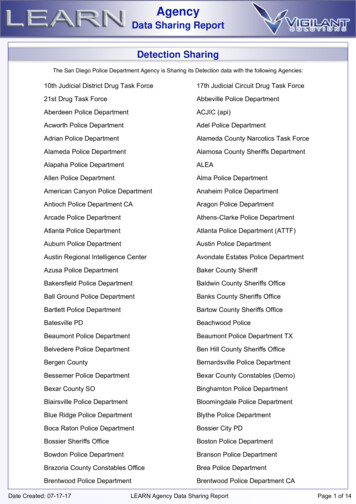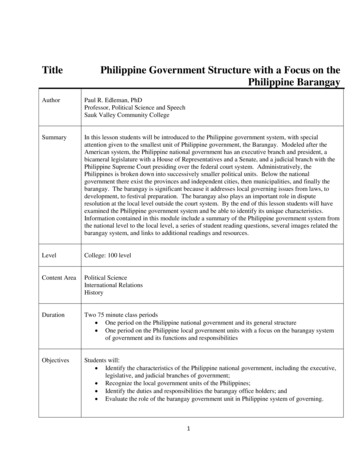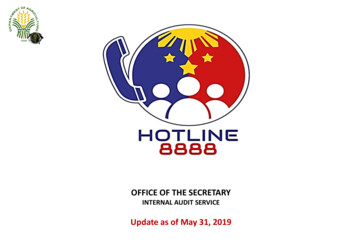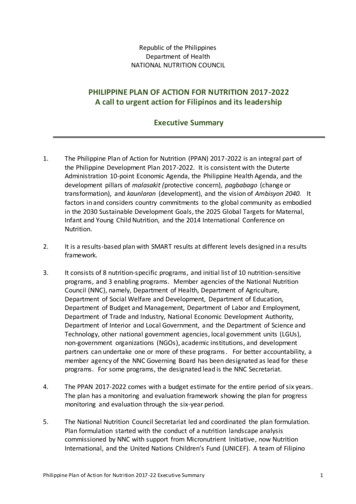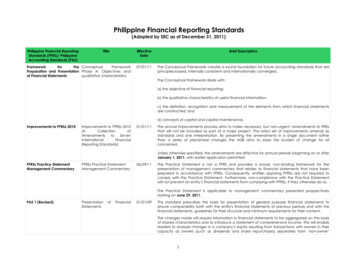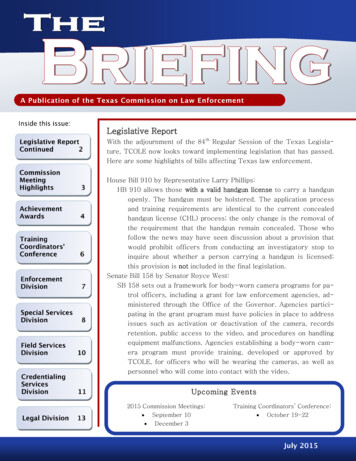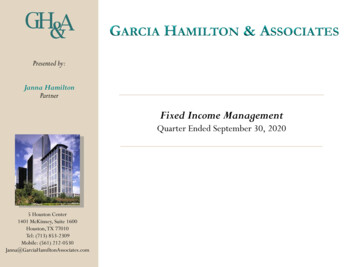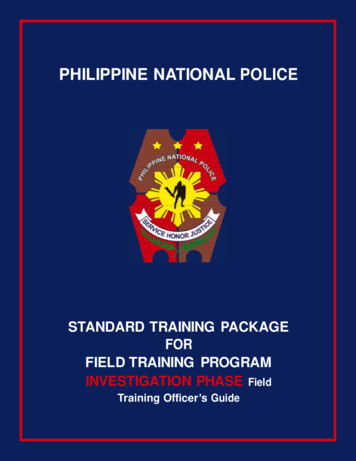
Transcription
PHILIPPINE NATIONAL POLICESTANDARD TRAINING PACKAGEFORFIELD TRAINING PROGRAMINVESTIGATION PHASE FieldTraining Officer’s Guide
, ,Peace and order Agenda for Transformationand upholding of the Rule-Of-Law
PHILIPPINE NATIONAL POLICESTANDARD TRAINING PACKAGEFORFIELD TRAINING PROGRAMINVESTIGATION PHASE FieldTraining Officer’s Guide
FIELD TRAINING OFFICER’S GUIDEon Investigation PhaseCOPYRIGHT PAGEPHILIPPINE NATIONAL POLICEStandard Training Package for Field Training ProgramInvestigation PhaseField Training Officer‟s GuideCopyright 2014Printed by:Directorate for Human Resource and Doctrine DevelopmentAll rights reserved. This publication may not be reproduced, in whole or in part, in anyform or by any means electronic or mechanical or by any information storage andretrieval system now known or hereafter invented, without prior written permission ofthe Director, Directorate for Human Resource and Doctrine Development, with postaladdress at Ground Floor, NHQ Building, Camp Crame, Quezon City and telephonenumber (632) 725-4046 or 723-0401 local 3184.iiCOPYRIGHT PAGEFIE L DTRA I NI N GPROG R A M
FIELD TRAINING OFFICER’S GUIDEon Investigation PhaseRepublic of the PhilippinesDepartment of the Interior and Local GovernmentNATIONAL POLICE COMMISSION371 Sen. Gil Puyat Ave, Makati CityMESSAGEI commend the efforts of the Philippine National Police in thedevelopment of this Standard Training Package for Field TrainingProgram with the goal of providing a detailed day-to-day guide toensure that wherever the FTP is being conducted, the trainees/recruits are provided with quality and standardized training.This endeavor is a manifestation of the PNP‟s commitmenttowards the attainment of a credible and effective police force. It isthrough training that the knowledge, skills, and attitudes of everypersonnel are being molded.The NAPOLCOM and the PNP will continue to work in synergytowards the achievement of our goals and the improvement of the peace and order situationin the country.I extend my warmest congratulations to the PNP leadership for its efficient service andproactive effort to address the needs of the organization.MAR ROXASChairman, NAPOLCOMNAPOLMESSAGEFIE L DTRA I NI N GPROG R A Miii
FIELD TRAINING OFFICER’S GUIDEon Investigation PhaseRepublic of the PhilippinesNATIONAL POLICE COMMISSIONNATIONAL HEADQUARTERS, PHILIPPINE NATIONAL POLICEOFFICE OF THE CHIEF, PNPCamp Crame, Quezon CityFOREW ORDIt is with pride that I commend the men and women of thePhilippine National Police involved in crafting this ¿rst-everStandard Training Package (STP) for Field Training Program(FTP) which will provide our ¿eld training of¿cers (FTOs) anindispensable tool in facilitating the conduct of the FTP. It alsoincludes a police trainees‟ guide as reference for our police recruitsas they go about the program. The efforts and commitment youshared to accomplish this task is worthy of recognition.With the implementation of this STP for FTP, the organizationis con¿dent that it will be able to produce and develop morecompetent and effective police of¿cers committed in providing“Serbisyong Makatotohanan” to the community that it swore to serve and protect.This STP is part of the realization of the competency program under the CODE-P StrategicInitiative.At the end of it all, everything rests upon us on how we will utilize the knowledge impartedto us and how we will exercise the authority and power vested upon us as police of¿cers andpublic servants.ALAN LA MADRID PUPURISIMAPolice Directorrector GeneralGeneraChief, PNPP“Serb isyong Makatotohanan”ivFOREW ORDFIE L DTRA I NI N GPROG R A M
FIELD TRAINING OFFICER’S GUIDEon Investigation PhaseRepublic of the PhilippinesNATIONAL POLICE COMMIS SIO NNATIONAL HEADQUARTERS, PHILIPPINE NATIONAL POLICEDIRECTORATE FOR HUMAN RESOURCE AND DOCTRINE DEVE L O PM E N TCamp Crame, Quezon CityPREFACEThe Directorate for Human Resource and DoctrineDevelopment (DHRDD) has undergone major developmentsaimed at improving the quality of training being given to everyPNP personnel.With the CPNP‟s directive to improve the Field TrainingProgram (FTP) for PO1, this Directorate, in coordination withthe PNP Training Service (PNPTS), initiated the developmentof a Standard Training Package (STP) for FTP with the help ofseasoned Field Training Officers (FTOs) and Regional SpecialTraining Unit (RSTU) Training Managers from the different PoliceRegional Offices. The inputs provided in the development of thisSTP were derived from the first hand experiences of the FTOs and Training Managers, thus,making this STP more realistic and attuned to the needs of the police trainees.The STP is a day-to-day guide for FTOs as well as trainees in the conduct of the FTPto ensure that all the learning objectives are accomplished. The STP for FTP will serve asthe “bible” in implementing a uniform and standard training for all police trainees undergoingthe Field Training Program. It contains, among others, the program of instruction, trainingmanuscripts, slide presentations, sample scenarios, and test questionnaires that would aidthe FTOs in conducting the field training of the police trainees. It also contains the PoliceTrainees Guide which would serve as the trainee‟s reference and manual as they go aboutthe program.With this Standard Training Package, the DHRDD is hopeful that the FTO could providebetter quality training and produce more competent and credible police officers in accordancewith the CPNP‟s CODE-P Strategic Initiative.ALEX PAUL INTONTO MONTEAGUDMONTEAGUDOPolice DirectorTDHRDDTDHRDDPREFACEFIE L DTRA I NI N GPROG R A Mv
FIELD TRAINING OFFICER’S GUIDEon Investigation PhaseACKNOWLEDGEMENTThe Standard Training Package for Field Training Program (STP for FTP) could neverbeen crafted if not for the time, effort, and dedication exemplified by the men and women ofthe Philippine National Police who shared not only their knowledge but also their first handexperiences and expertise in crafting this STP for FTP.With this, I would like to extend my heartfelt gratitude and appreciation to the peoplebehind this commendable accomplishment.To the officers and staff of the PNP Training Service (PNPTS) led by PCSUPT VICENTEAREÑO LOOT, Director, PNPTS, for the support and assistance rendered in the developmentof this STP for FTP;To PCSUPT LYNDEL ALPUERTO DESQUITADO and PCSUPT MANUEL CESARALVAREZ PRIETO, Deputy Director and Executive Officer, Directorate for Human Resourceand Doctrine Development (DHRDD) for steering the DHRDD Technical Staff towards therealizaiton of this project;To the members of the Technical Staff - led by PSSUPT AGUSTIN ESPERANZA SENOTand to PSSUPT JEROME SALE BAXINELA, Head Facilitator, and PSSUPT RANULFOIBAÑEZ DEMIAR for their tenacity and commitment as they carried out all the spadework toensure the successful implementation of this project.My greatest appreciation goes out to the members of the Technical Working Groupscomposed of members of the PNPTS and the Field Training Officers and Regional SpecialTraining Unit Training Managers and particularly to PSUPT PAMELA DESQUITADOBALASABAS, for their strength of purpose as they poured their energy to accomplish thisgoal.And to NUP Ivy Anne B. Robrigado and NUP Lei-lani R. David for their diligence inediting and proofreading the STP for FTP.To PDG ALAN LA M ADRID PURISIMA, Chief, PNP, for providing the leadership andinspiration as he continues to steer the PNP towards the fulfillment of its goals and thebetterment of the police service.ALEX PAUL INTO MONTEAGUDOMONTEAGUDPolice Director &TDHRDDviACKNOW LEDGEMENTFIE L DTRA I NI N GPROG R A M
FIELD TRAINING OFFICER’S GUIDEon Investigation PhaseTABLE OF CONTENTSMESSAGE.iiiFOR E W ORD . ivPR EFAC E. vACKNOWLEDGEMENT . viINTRODUCTION . 1Phase Information . 1Training Goal. 1Training Objectives . 1Target Audience . 2Duration. 2Police Trainee‟s Material . 2Training References . 2PROGRAM OF INSTRUCTION (POI). 4MASTER TRAINING SCHEDULE . 6MODULE I: Orientation and FamiliarizationTraining Plan . 8Daily Training Schedule . 9Training Manuscript. 12Organizational Structure . 13Duties of an Investigator . 13Duties of an Investigator as First Responder. . 14Evaluation . 16Recapitulation . 17Slides . 18TABLE OF CONTENTSFIE L DTRA I NI N GPROG R A Mvii
FIELD TRAINING OFFICER’S GUIDEon Investigation PhaseMODULE II: Police Blotter and Incident Report FormTraining Plan . 20Daily Training Schedule . 21Training Manuscript. 23Police Blotter. 24Report Content . 24Procedures on Incident Reporting and Filling Out theIncident Record Form . 27Procedures on Recording Incident Report in the Police Blotter . 29Basic Guidelines . 31Recapitulation . 35Slides . 36MODULE III: Police Report WritingTraining Plan . 39Daily Training Schedule . 40Training Manuscript. 42Definition of Terms . 43Importance of Investigative Writing. 44Requisites of a Good Investigation Report. 44Basic Types of Investigation Report . 45Recapitulation . 47Slides . 48MODULE IV: Knowledge on Laws Under the Revised Penal Code,Special Laws and Laws on Criminal ProceduresTraining Plan . 51Daily Training Schedule . 53Training Manuscript. 56viiiTABLE OF CONTENTSFIE L DTRA I NI N GPROG R A M
FIELD TRAINING OFFICER’S GUIDEon Investigation PhaseHow are Crimes Committed?. 57Article 148 of the Revised Penal Code: Direct Assault . 57Article 149 of the Revised Penal Code: Indirect Assault. 58Article 151 of the Revised Penal Code: Resistanceand Serious Disobedience. 59Article 155 of the Revised Penal Code: Alarms and Scandals . 59Article 267 of the Revised Penal Code: Kidnapping and SeriousIllegal Detention . 60Article 248 of the Revised Penal Code: Murder. 61Article 249 of the Revised Penal Code: Homicide . 62Article 251 of the Revised Penal Code: Death Caused or InjuriesInflicted in a Tumultuous Affray. . 63Article 263 of the Revised Penal Code: Crimes of SeriousPhysical Injuries. 63Article 265 of the Revised Penal Code: Crimes of Less SeriousPhysical Injuries. 64Article 266 of the Revised Penal Code: Slight Physical Injuriesand Maltreatment . 65Article 293 of the Revised Penal Code: Robbery . 65Article 299 of the Revised Penal Code: Robbery in an Inhabited Houseor Edifice for Worship and Private Building . 66Article 306 of the revised Penal Code: Brigandage . 66Article 308 of the Revised Penal Code: Theft (Hurto). 67Article 333 of the Revised Penal Code: Crimes of Adultery. 68Article 334 of the Revised Penal Code: Crime of Concubinage . 68Article 336 of the Revised Penal Code: Crime of Acts of Lasciviousness . 69Evaluation . 69Recapitulation . 70Slides . 72TABLE OF CONTENTSFIE L DTRA I NI N GPROG R A Mix
FIELD TRAINING OFFICER’S GUIDEon Investigation PhaseDAY 4: Knowledge on Laws under the Revised Penal Code,Special Laws and Laws on Criminal ProceduresTraining Plan . 74Daily Training Schedule . 76Training Manuscript. 80Complaint and Information Defined . 81Arrest Defined. 81Search Warrant Defined . 88What is Seizure. 93Inquest vs. General Filing of Case. 95Evaluation . 96Test Questions . 97Recapitulation . 97Slides . 99DAY 5: Special LawsTraining Plan . 107Daily Training Schedule . 109Training Manuscript. 112Authority to Operate Drug Related Case . 113Drug Cases Investigation Involving Planned Operations . 114Illegal Cockfighting: Punishable Acts . 117P.D. 1602 (Illegal Gambling) . 118Slides . 121DAY 7: Investigation of VAWC Cases and the Crime of RapeTraining Plan . 127Daily Training Schedule . 128Training Manuscript. 131xTABLE OF CONTENTSFIE L DTRA I NI N GPROG R A M
FIELD TRAINING OFFICER’S GUIDEon Investigation PhaseR.A. 9262 “Violence Against Women and their Children” . 131Duties of the Law Enforcer . 131Procedures on Investigating VAWC Case . 132Investigation of Cases under R.A. 8353 . 133Procedures When Investigating the Crime of Rape . 134Inquest Procedures . 135Slides . 136DAY 8: Investigation of Cases under R.A. 7610 and R.A. 9344Training Plan . 141Daily Training Schedule . 142Training Manuscript. 145Investigation of Cases Under Anti-Child Abuse Law (R.A. 7610) . 145Juvinile Justice and Welfare Act of 2006 (R.A. 9344). 149Evaluation . 164Test Questions . 165Recapitulation . 165Slides . 166MODULE V: Basic Role of the First Responder in Crime Scene InvestigationTraining Plan . 178Daily Training Schedule . 180Training Manuscripts . 183Definition of Terms . 184Basic Tools or Equipment of an Investigator. 185Basic Investigative Procedure upon Receipt of a Walk-in Complaint . 186How to Respond to a Crime Scene . 186Evaluation . 187Recapitulation . 188TABLE OF CONTENTSFIE L DTRA I NI N GPROG R A Mxi
FIELD TRAINING OFFICER’S GUIDEon Investigation PhaseTest Questions #1 . 188Test Questions #2 . 189Test Questions #3 . 190Test Questions #4 . 190Slides . 192DAY 10: Investigative ProcedureTraining Plan . 196Daily Training Schedule . 198Training Manuscript. 201General Investigative Procedures by a First Responderat the Crime Scene . 201Evaluation . 202Test Question #1. 203Nine (9) Standard Methods of Recording Investigative Data. 203Evaluation . 204Test Question #2. 204Seven (7) Standard Operating Proceduresin Booking Arrested Suspects. 205Evaluation . 206Test Question #3. 206Four (4) Requisites of a Dying Declaration. 207Evaluation . 207Test Question #4. 207Recapitulation . 208Slides . 209MODULE VI: Making an Affidavit of ArrestTraining Plan . 210Daily Training Schedule . 211xiiTABLE OF CONTENTSFIE L DTRA I NI N GPROG R A M
FIELD TRAINING OFFICER’S GUIDEon Investigation PhaseTraining Manuscript. 213Parts of an Affidavit of Arrest . 213Question and Answer Format of a Sworn Statement. 216MODULE VII: Court Decorum and ObservationTraining Plan . 219Daily Training Schedule . 220Training Manuscript. 221Courthouse Rules . 221Building Entrance Protocols in Court. 222Preparations Prior to Attending Court Hearing . 223Evaluation . 225Test Questions . 225Recapitulation . 225Slides . 226MODULE VIII: Barangay Justice SystemTraining Plan . 228Daily Training Schedule . 229Training Manuscript. 231Katarungan Pambarangay Law . 232Evaluation . 235Test Questions . 235Recapitulation . 235SCENARIOS AND PRACTICAL EXERCISES . 236TABLE OF CONTENTSFIE L DTRA I NI N GPROG R A Mxiii
FIELD TRAINING OFFICER’S GUIDEon Investigation PhaseLIST OF ANNEXES“A” - Incident Record Form . 319“B” - Crime Scene Investigating Flowchart . 321“C” - CSI Form 1: First Responder‟s Form. 323“D” - CSI Form 2: Request for the Conduct of SOC O . 326“E” - CSI Form 3: Turnover of Collected Evidence from Investigationto SOCO Team Leader . 327“F” - CSI Form 4: SOCO Report Form 1. 328“G” - SOCO Report Form 2 . 329“H” - SOCO Report Form 3 . 330“I”- SOCO Report Form 4 . 331“J”- CSI Form 5: Release of Crime Scene Form . 332“K” - CSI FORM 6: IOC/Investigator‟s CSI Form . 333“L” - CSI REPORT: Crime Scene Investigation Report . 337“M” - Investigator‟s Checklist at the Crime Scene . 338“N” - Booking of Arrested Suspects Flow Chart . 344“O” - PNP BOOKING FORM 1: Medical Examination of Arrested SuspectsRequest Form . 345“P” - PNP BOOKING FORM 2: Arrest and Booking Form . 346“Q” - PNP BOOKING FORM 2A: Medical Examination Result Sheet . 348“R” - PNP BOOKING FORM 2B: Booking Mug Shots . 349“S” - Mug Shot Wall . 350“T”- Sample of Name Tag Board. 351“U” - Pro Forma Mug Shot Identification Sheet. 352“V” - PNP Booking Form 2C: “Ten Print Card (AFIS) . 354“W” - Ten Print. 356“X” -Turnover of Arrested Suspects Form . 357“Y” -PNP Booking Form 4: Suspects Property Receipt . 358“Z” -PNP Booking Form 4: Jailer‟s Receipt of Suspects Form . 359Performance Evaluation Sheet (PES) .
FIELD TRAINING OFFICER'S GUIDE on Investigation Phase iv FOREWORD F I E L D T R A I N I N G P R O G R A M NP A MADRID PUALAN irector General Republic of the Philippines NATIONAL POLICE COMMISSION NATIONAL HEADQUARTERS, PHILIPPINE NATIONAL POLICE
